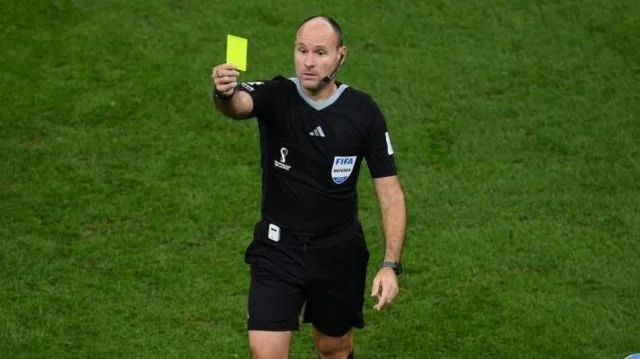In a soccer match, players can become tense or frustrated while playing, which may lead to them causing harm to their opponents through poor tackles or undisciplined actions. Therefore, whenever a player commits a bad tackle or engages in an undisciplined action, there are consequences in the form of punishments.
These punishments can include the referee issuing a yellow card or a red card to the player. Initially, the yellow card serves as a warning, but repeated offenses can result in the player being sent off. In this detailed article, we will delve into how these disciplinary measures actually function.
How Does a Yellow Card Work?
When a player receives their first yellow card in a match, it serves as a warning, allowing the player to continue participating in the game. If the player is then issued a second yellow card after the first one, they will be shown a red card and subsequently expelled from the field. Additionally, the player will be ineligible to participate in the next match due to a one-match suspension.
Cumulative Effects of Yellow Cards
Instances arise where yellow cards can be accumulated, and distinct rules govern these situations. The consequences for accumulating yellow cards differ between cup matches and league matches. Given that league matches have a longer duration compared to cup matches, yellow cards accumulated in league matches result in less severe punishments than those incurred in cup matches.
Yellow Card Accumulation in a Tournament
Each tournament establishes its own set of rules regarding the accumulation of yellow cards. Prominent tournaments such as the Premier League, Champions League, and World Cup have distinct regulations governing the accumulation of yellow cards. Below, we will delve into the specific rules applicable to each tournament.
Premier League Yellow Card Rule
In the Premier League, La Liga, and MLS, if a player accumulates a total of five yellow cards within the first 19 games of the season, an automatic one-match suspension is imposed. This five-yellow-cards rule is consistent across these leagues. Furthermore, in the Premier League, if a player accumulates ten yellow cards, they will face an automatic two-match suspension in the competition.
It is important to note that these suspensions are applicable to all domestic competitions, including the EFL and the FA Cup. However, they do not apply to European competitions.
European Competitions Yellow Card Rule
In the UEFA Champions League and the UEFA Europa League group stage matches, if a player accumulates three yellow cards that do not lead to a red card, as well as any subsequent odd-numbered cards (fifth, seventh, ninth, eleventh), they will receive an automatic one-match suspension in the competition. This rule applies to both tournaments.
However, once the quarter-final stage of the competition has concluded, all previous yellow cards will expire and will not be carried over to the semi-finals. So the only way a player will miss the final is by receiving two yellow cards in a single semi-final game or a straight red card.
Additionally, at the conclusion of the competition, all yellow cards will expire and will not be carried over to the following season.
Why Yellow Card Can be Issued
Yellow cards can be issued by the referee for the following offenses:
- Inappropriate or bad tackles.
- Disagreement with the referee’s opinion.
- Intentionally wasting time. This is often done by goalkeepers when they want to play a goal kick.
- Intentional handball.
- Intentionally smashing the ball on the ground.
- Speaking foul language to the referee.
- Taking a shirt off during a celebration.
Mendy Received Yellow Card for Wasting Time
Conclusion
The duration for which a yellow card remains valid depends on the specific competition, as each competition has its own set of rules governing this aspect.



